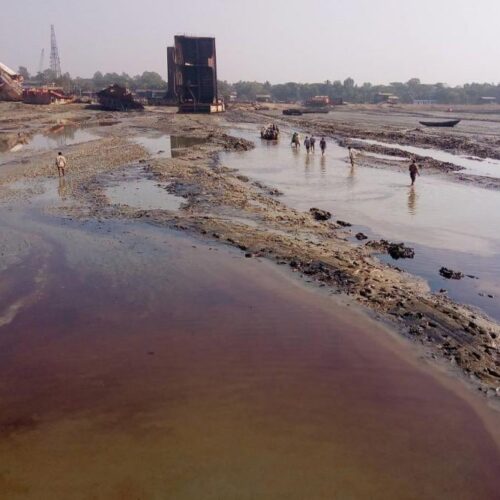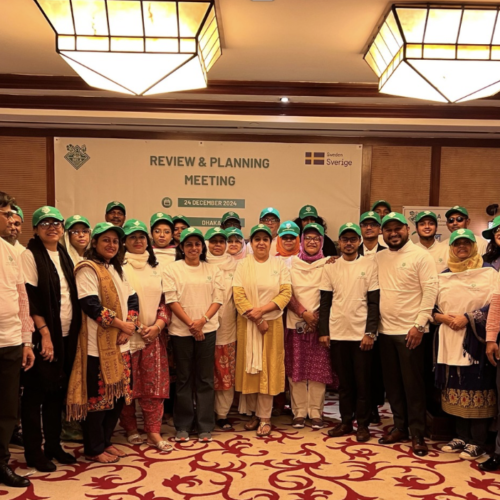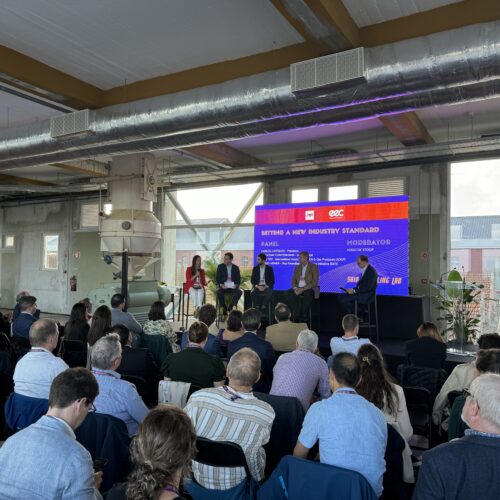Press Release – Another worker dies at Alang shipbreaking yard
A wake-up call as Hong Kong Convention’s entry-into-force will rubberstamp dangerous practices
Just weeks before the Hong Kong Convention (HKC) for the Safe and Environmentally Sound Recycling of Ships is set to enter into force on 26 June, another shipbreaking worker died in Alang—the world’s largest ship dismantling site—at a facility that claims to already be compliant with the Convention’s standards [1].
On 20 May, 20-year-old Satur Bhai, from Bhara Para village in Gujarat’s Bhavnagar District, fell to his death while dismantling the vessel REM (IMO 9157739) at Plot No. 50. Without a safety harness, he was tasked with removing furniture from the ship’s seventh level. He was employed as a begari (helper)—a position typically untrained, underpaid, and unprotected.
The REM, formerly sailing under the South Korean flag as SK SUPREME, was reflagged to St. Kitts and Nevis before being dumped in Alang. This deliberate flag-switching is a textbook case of regulatory evasion, allowing the vessel’s beneficial owner—South Korea’s SK Shipping Co. Ltd—to sidestep international safety and environmental norms, and to obtain the highest profit for the end-of-life asset.
Despite growing scrutiny, dangerous and abusive practices remain the norm in Alang where ships are scrapped on tidal mudflats. And while the HKC aims to regulate the industry, its weak provisions threaten to legitimise these very conditions.
Satur Bhai’s death is not isolated. In these last five years at least 10 workers have lost their lives taking apart the global fleet in Alang under conditions that would never be allowed in major ship owning countries, including South Korea. With 90 percent of the global fleet still being scrapped on three beaches in South Asia, the shipbreaking sector is marked by systemic neglect, opaque ownership structures, and a race to the bottom in environmental and labour protections.
This latest fatality follows renewed calls on South Korea to end the dumping of end-of-life vessels on South Asian shores. The export of hazardous waste—including ships laden with toxic paints, asbestos, and residue oils—to countries without proper containment and disposal infrastructure contravenes the Basel Convention on the Control of the Transboundary Movements of Hazardous Waste and their Disposal, to which South Korea is a party.

NOTE
[1] In the last years, there has been a proliferation of the so-called Statements of Compliance with the Hong Kong Convention, inspections conducted at yards on a business-to-business basis as yet another attempt by the industry to greenwash its dirty and dangerous practices. Facilities that lack infrastructure to contain pollution; lack protective equipment to prevent toxic exposure; have no hospitals to handle emergencies in the vicinity; and where systemic breaches of labour rights have been documented have been able to obtain these Statements.
Related news

Press Release – Bangladesh: shipping firms profit from labour abuse
New report reveals network used by shipowners and shipbreaking yards to circumvent international laws prohibiting the dumping of end-of-life ships on South Asian beaches.
... Read More
Press Release – NGOs denounce death toll of shipbreaking and call for an urgent move of the industry to safe and sustainable platforms
In the last weeks, seven workers tragically died while dismantling vessels in Bangladesh and Turkey. Five workers were killed and three severely injured in seven separate… Read More

Platform publishes South Asia Quarterly Update #9
The NGO Shipbreaking Platform publishes today the ninth South Asia Quarterly Update, a briefing paper in which it informs about the shipbreaking industry in Bangladesh, India and… Read More

Platform News – Surge of fatal accidents in Chittagong
At least five shipbreaking workers have been killed and five more severely injured in a series of fatal accidents in Bangladesh in one month only. On… Read More

Platform publishes South Asia Quarterly Update #41
Fourteen workers suffered an accident on South Asian beaches in the first quarter of 2025.
... Read More
Platform News – ‘With Bare Hands’: an immersive journey into the problems of shipbreaking
International media outlets publish ‘With bare hands’, the first multimedia and data-driven reporting project that documents the negative impacts on the environment and the human costs of… Read More


